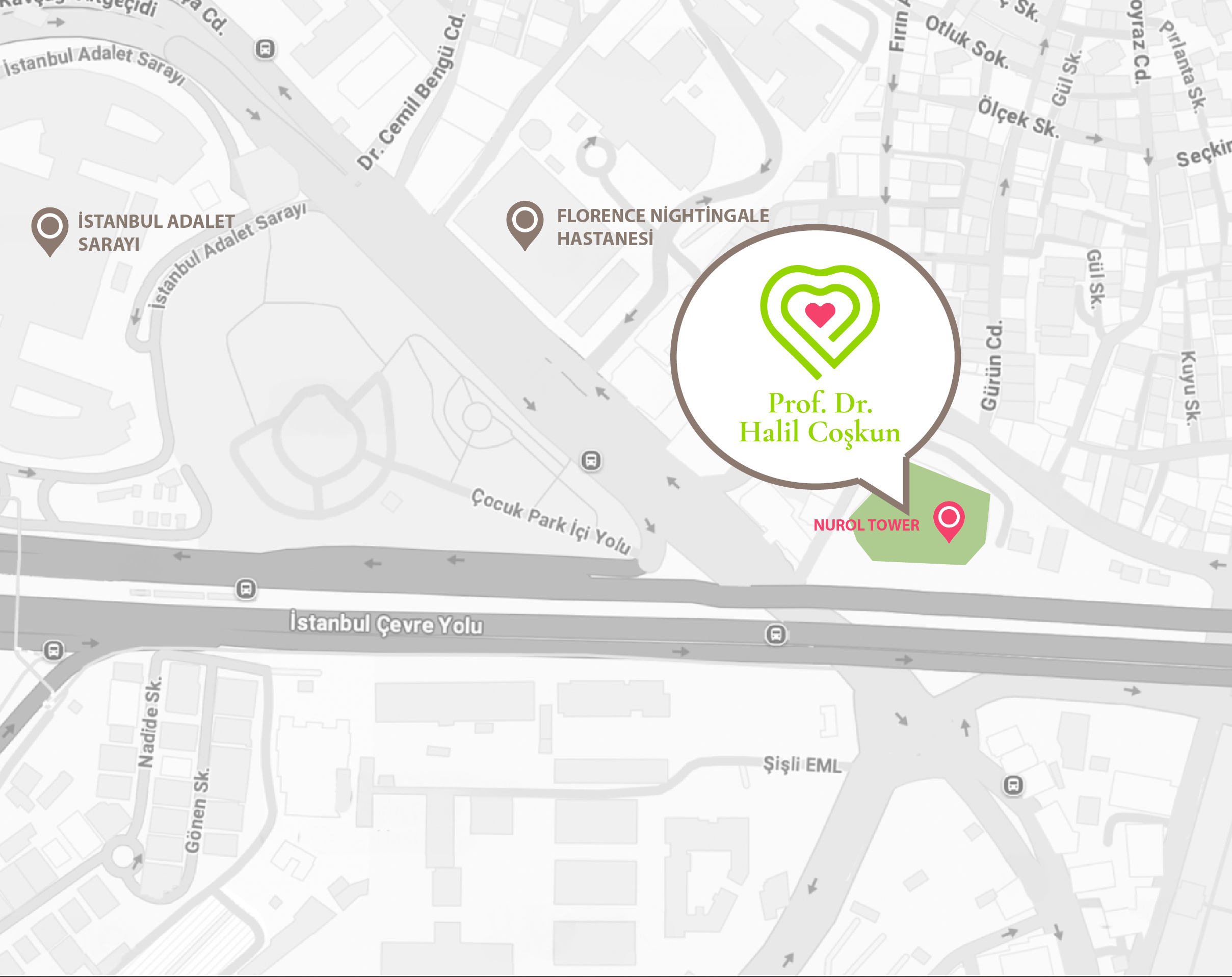What is Gastric Bypass Surgery?
 Gastric Bypass is an obesity surgery method that both reduces the stomach volume and decreases absorption in the intestines, offering a dual effect.
Gastric Bypass is an obesity surgery method that both reduces the stomach volume and decreases absorption in the intestines, offering a dual effect.
This surgery provides significant weight loss through its volume-reducing effect, which limits food intake, as well as its malabsorption feature, which limits the absorption of calories and nutrients.
The procedure is performed using laparoscopic (closed) or robotic surgery methods, typically involving 4-5 small incisions.
What are the Types of Gastric Bypass?
1. Roux-en-Y Gastric Bypass
- The upper part of the stomach is transformed into a small stomach pouch of about 25–30 cc in volume.
- A part of the small intestine is connected to this pouch, allowing food to bypass the stomach and the duodenum, going directly to the small intestine.
- This creates both mechanical restriction and a reduction in absorption.
2. Mini Gastric Bypass (Single Anastomosis)
- The stomach is shaped into a narrow, tube-like pouch.
- A segment of the small intestine, about 200 cm in length, is connected to the stomach pouch.
- This method is technically simpler and faster but results in a similar weight loss effect.
How Does Gastric Bypass Help with Weight Loss?

- Volume Restriction: The reduced stomach capacity ensures less food consumption.
- Absorption Restriction: Since part of the intestines is bypassed, some of the calories and nutrients consumed are not absorbed and are excreted.
- Hormonal Effect: By rerouting the small intestine, the release of hormones such as GLP-1, which increases satiety, is enhanced.
Who is Suitable for Gastric Bypass?
- Individuals with a BMI ≥ 35
- Individuals with a BMI between 30-35 and metabolic issues such as diabetes, hypertension, or sleep apnea
- Patients who have been unable to lose weight permanently through diet, exercise, and medication
- Patients who are deemed appropriate after behavioral and medical evaluation
What is the Post-Surgery Process Like?
Hospital Stay Duration:
- Average 2–4 days.
- It may vary depending on pre-surgery evaluations and the recovery process.
Reversal:
- Gastric bypass is technically reversible.
- However, transitioning to this surgery requires a second operation, and adherence to lifestyle changes is crucial.
When Can I Return to Normal Life?
- You should avoid driving for 1 week.
- Heavy sports and strenuous activities should be avoided for 4–6 weeks.
- Desk jobs can be resumed after 1–2 weeks.
Is Vitamin and Mineral Supplementation Necessary?
- Yes. After gastric bypass, the absorption of certain vitamins and minerals may decrease.
- Supplementation with B12, vitamin D, iron, calcium, and folic acid is recommended.
- The follow-up plan will be personalized and determined in collaboration with your dietitian and doctor.
How Much Weight Can I Lose?
- 70-80% of excess weight can be lost within 1–2 years.
- This rate can increase up to 90% in some patients.
- Regular follow-up and adherence to dietary guidelines are essential for successful results.
What Are the Possible Risks?
- Bleeding, infection, embolism
- Intestinal obstruction (ileus), hernia
- The most serious risk is the formation of leaks at the stomach-intestine connection.
- Experienced surgeons and high-quality surgical equipment help reduce these risks.
Long-Term Weight Management with Gastric Bypass Surgery is Possible
Gastric bypass is not only effective for rapid weight loss but also a highly effective treatment option for controlling metabolic diseases such as Type 2 diabetes, insulin resistance, hypertension, and cholesterol.
Correct patient selection + surgical experience + multidisciplinary follow-up = long-term success
You can access Prof. Dr. Halil Coskun’s recent SCI and SCI-Expanded academic publications >>> via this link
Gastric Bypass surgery, along with our expert team and functional follow-up system, is not just a surgical procedure, but a long-term life transformation.
Obesity does not have to be your fate.
Take the first step now.










